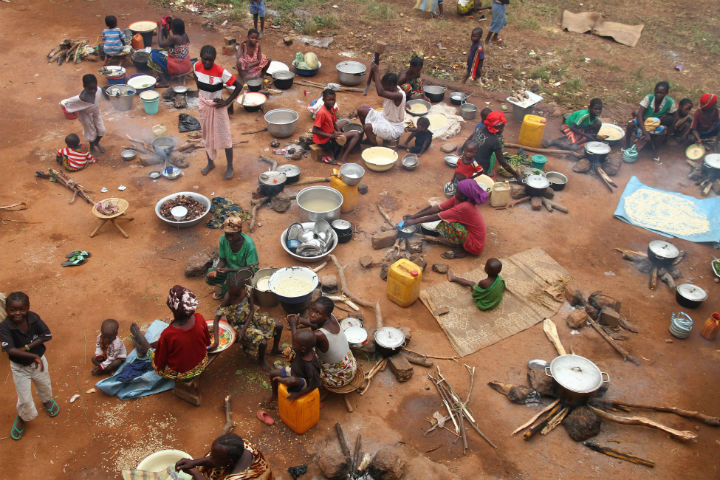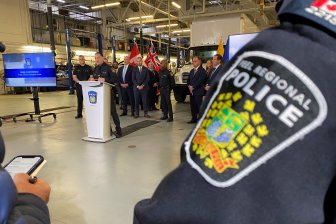VANCOUVER – There are renewed fears the conflict in Central African Republic could spill over its borders and that the humanitarian situation inside the country will only get worse.

At least 440,000 people – nearly 10 per cent of the country’s population – have been displaced amid violent unrest following the March 24 government coup.
Doctors Without Borders/Médecins Sans Frontières (MSF) on Wednesday described “burnt villages and appalling scenes of murder.”
The organization is working in the northwest city of Bossangoa and said it has heard “firsthand accounts” of sectarian violence and targeted killings.
Al-Jazeera reported about 60 people were believed to have been killed in clashes last week alone.
MSF reports more than 30,000 displaced people in Bossangoa alone, calling the situation “precarious.”
“People have no shelter and they sleep wherever they can, inside the church, school or under trees. It is crowded and people cook, eat, sleep, wash and defecate in the same area. Under these disastrous hygienic conditions, the risk of disease outbreaks is high,” MSF’s head of mission in CAR, Ellen Van der Velden said in a statement Wednesday.
“Civilians, medical staff, and humanitarian workers have all been subject to physical aggression,” MSF reported, adding staff witnessed the “execution of one healthcare worker” and other violent attacks on humanitarian staff.
“In the last month, we have treated more than 60 people in Bossangoa for injuries that are the result of violence, largely gunshot and machete wounds, including women and children,” MSF surgeon Erna Rijinierse said in a statement. “More than 80 per cent of surgeries have been for wounds that are conflict-related.”
France’s prime minister Francois Hollande, who has called the situation “a political emergency”, has committed to send additional troops to the country, increasing the number of French soldiers from 400 to as many as 750 by the end of the year.
The African Union has sent 2,500 troops to assist. Those soldiers, mostly from neighbouring nations, could become the UN peacekeeping operation resulting from a vote last week.
The Seleka rebel alliance moved into the capital of Bangui and overthrew the government of President Francois Bozize on March 24. Rebel leader Michel Djotodia declared himself president and defence minister the next day, but has said he’ll step aside after elections in 2015.
Bozize, in power for 10 years, fled the capital after rebels seized the presidential palace, seeking refuge in Cameroon and later seeking asylum in Benin.
In August, UN officials said CAR would be on its way to becoming a failed state if action was not taken.
“If inadequately addressed, this crisis threatens to spread beyond the Central African Republic’s borders and to further destabilize a region already facing significant challenges,” UN Under-Secretary-General for Humanitarian Affairs Valerie Amos said at that time.
In July, Canada announced $6.2 million in assistance to be distributed to aid agencies working on the ground. Canada allotted $1.5 million to MSF, $1 million to UNICEF and $1 million to the World Food Programme as well as an additional $700,000 to the World Food Program/United Nations Humanitarian Air Service.
The remaining $2 million was designated to other humanitarian partners. Foreign Affairs did not specify which agencies that money would be allotted to.
Human Rights Watch has called the conflict a “forgotten human rights crisis,” and has accused the Seleka of being behind much of the violence. Djotodia has denied those accusations.
“The transitional government appears unable to rein in Seleka forces or enforce security in the country,” the London-based group wrote in September.
“The Seleka should immediately end its killings and pillage, restore order, and allow access to desperately needed humanitarian assistance,” HRW said. “The Seleka leadership needs to take all necessary measures to control its forces, denounce killings by its members and supporters, restore civilian administration throughout the country, and ensure accountability for the crimes committed.”
According to the watchdog group, more than 1,000 homes were destroyed in the three months following the coup. The group also alleges Seleka are responsible for the deliberate killings of civilians – including women, children and the elderly – the rape of women and girls, and the possible use of child soldiers.
With files from The Associated Press, France24 and the Wall Street Journal




Comments